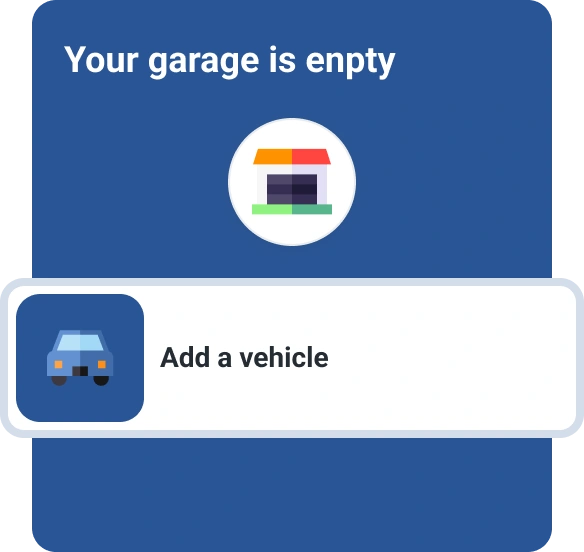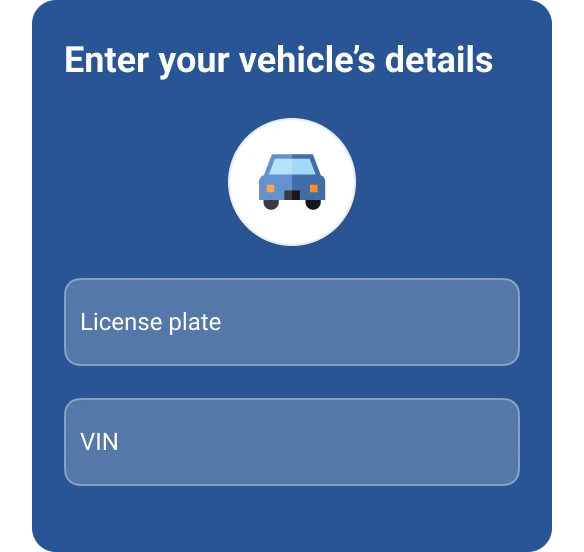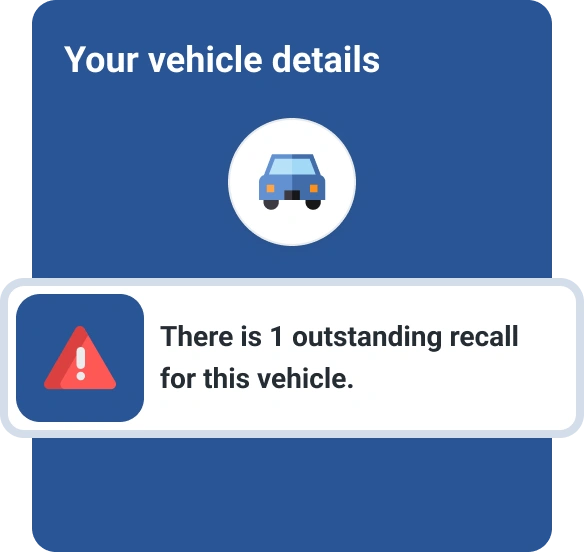Bad Credit Car Loan Rates for November 2024
Quick Answer
Borrowers with subprime credit scores had an average interest rate of 13.18% on new car loans and an average used car loan interest rate of 18.86%, according to Experian data.

On average, borrowers with subprime credit scores had an average interest rate of 13.18% on new car loans and an average used car loan interest rate of 18.86%, according to Experian's State of the Automotive Finance Market report from the second quarter (Q2) of 2024.
If you have bad credit, you'll likely receive a higher interest rate and have fewer loan offers than borrowers with higher credit scores. There are still options available, however, and shopping around could be important for getting the best deal possible.
Car Loan Interest Rates by Credit Score
Your credit score can be an important factor in determining your auto loan's annual percentage rate (APR). In general, the higher your credit score, the lower your rate, which could make qualifying for a larger loan and paying off the debt easier.
Experian data breaks down the average APR and monthly payment for consumers in different score ranges.
| Credit Score Range | New Car APR | Monthly Payment | Used Car APR | Monthly Payment |
|---|---|---|---|---|
| Super prime (781 - 850) | 5.25% | $717 | 7.13% | $522 |
| Prime (661 - 780) | 6.87% | $742 | 9.36% | $518 |
| Near prime (601 - 660) | 9.83% | $765 | 13.92% | $535 |
| Subprime (501 - 600) | 13.18% | $749 | 18.86% | $536 |
| Deep subprime (300 - 500) | 15.77% | $719 | 21.55% | $532 |
Source: Experian data as of Q2 2024; VantageScore® 4.0 used
Car Loan Interest Rate Trends
Interest rates on auto loans are relatively high compared to the last several years, but rates are expected to fall. The Federal Reserve cut the federal funds rate by 0.5% in September 2024 and it may drop rates several more times. However, the Fed rate only indirectly affects auto loans, and auto loan rates might take their time going down.
Average Auto Loan Rates by Year
Where to Get a Bad Credit Car Loan
You might have fewer options when you don't have good credit, but there are still plenty of places you can go to shop around and compare offers:
- Banks and credit unions: Banks and credit unions may work with consumers who have bad credit, particularly if the consumer is a longtime customer or is on the high end of the bad credit range. If you can qualify, you might get the best rates and terms from a bank or credit union.
- From the manufacturer: Auto manufacturers' financing departments, also called "captive financing," might be an option if you're looking for a new car. You might even get a good offer if the manufacturer is focused on increasing sales of the car you want to buy.
- At a dealership: It doesn't hurt to try to get an auto loan at a dealership. The finance department might be able to shop around and gather offers from local banks, credit unions and the manufacturer. However, getting a loan through a dealer can be more expensive than going directly to the lender.
- Online lenders: You can try to apply directly with financing companies online. There are also online marketplaces where you can submit a single application and try to get offers from multiple lenders.
- Buy here, pay here financing: Buy here, pay here (BHPH) dealers might advertise easy approvals, even if you have bad or no credit. Although you might be able to quickly get approved, the loans often have high interest rates and fees, require large down payments and you might need to make weekly or biweekly payments.
Learn more: How to Get a Car Loan With Bad Credit
Factors That Affect Your Car Loan
Your credit score can be an important factor in determining your eligibility for a car loan and the interest rate you receive. But it's not the only one. Auto loan lenders also might consider:
- Your credit history: Lenders also may look for specific information in your credit report, such as whether you've ever had a car repossessed before.
- Down payment: Your down payment will affect your loan-to-value (LTV) ratio, or how much you're borrowing relative to the car's current value. Putting more money down to decrease your LTV might help you get a better loan.
- Repayment terms: For new cars, shorter-term loans tend to have higher monthly payments, but offer lower rates—partially due to the incentives that lenders offer. The rates on used car loans also tend to increase with the term, but some lenders offer lower rates for longer-term loans.
- The vehicle: The type of vehicle you buy and whether you're buying a new or used vehicle can affect your loan offers and rates. It may also affect your insurance payments.
- Debt-to-income ratio (DTI): Your monthly income relative to your monthly loan payments, or your DTI, can help lenders understand how difficult it will be to afford your monthly payment. A lower DTI is generally best.
- Market conditions: Current market conditions can also affect car loans. The Fed rate is one example, but lenders also might consider current demand for vehicles and how well existing borrowers are doing at repaying their auto loans.
All else being equal, you may also find your offers and rates vary because lenders may consider different criteria or target different types of borrowers. Lenders may even change their offers and who they're willing to lend to based on their goals for the quarter or year.
Learn more: How to Fix Credit After a Car Repossession
Monthly Payment Calculator
Experian data shows the average terms for new car loans based on borrowers' credit scores. The monthly payment for borrowers with the highest credit scores was only $2 lower than the payment for borrowers with the lowest scores. However, the borrowers with bad credit received lower loan amounts on average, had longer repayment terms and their APR was much higher, which means more of their monthly payments are going toward interest.
| Credit Score Range | Loan Amount | Loan Term | APR | Monthly Payment |
|---|---|---|---|---|
| Super prime (781 - 850) | $39,172 | 64 months | 5.25% | $717 |
| Prime (661 - 780) | $42,993 | 71 months | 6.87% | $742 |
| Near prime (601 - 660) | $42,467 | 74 months | 9.83% | $765 |
| Subprime (501 - 600) | $38,045 | 73 months | 13.18% | $749 |
| Deep subprime (300 - 500) | $33,917 | 72 months | 15.77% | $719 |
Source: Experian data as of Q2 2024; VantageScore 4.0 used
You can calculate and compare your monthly payments for different auto loan offers using Experian's car payment calculator. The calculator can also help you compare how much interest you'll pay overall for each loan.
Learn more: Buying a Car: How Much Can You Afford?
How to Improve Your Credit to Get a Better Loan
Whether you're after a larger loan amount, lower monthly payment or lower interest rate, a higher credit score can help you get a better loan. Improving your credit can take time, especially if you have a lot of negative information in your credit history. But here are a few things you can try:
- Make on-time payments. Your debt payment history is the most important credit scoring factor, so make sure you're making all your monthly payments on time. If you have an account that's past due, try to bring it current. Contact your creditors to ask about hardship options or get free help from a nonprofit credit counselor if you're feeling stuck.
- Pay down credit card balances. If you're revolving credit card debt, paying down your balances could lower your revolving credit utilization rate, which might increase your credit scores within a month or two. Additionally, look into ways to increase your credit limits, as that can also lead to a lower utilization rate.
- Pay off or settle collection accounts. Paying off or settling collection accounts could quickly improve most of your credit scores. Both options can help your credit scores, although paying in full is typically better than settling.
- Become an authorized user. Ask a friend or family member who responsibly manages their credit card to add you as an authorized user. The card issuer may report the account and its history to the credit bureaus under your name, which might improve your scores.
- Add on-time payments with Experian Boost®ø. Experian members can use the free Experian Boost feature to add eligible utility, phone, streaming services, rent and insurance payments to their Experian credit report. These accounts could improve some of your credit scores.
If you can't wait to buy a car, shop around and get the best auto loan you can right now. Then, focus on improving your credit and refinance your auto loan to improve your loan's terms.
Learn more: How Long Does It Take to Build a Good Credit Score?
Start Tracking Your Credit for Free
Having bad credit won't necessarily stop you from getting a car loan, but improving your credit could help you save money. Knowing where you're at and tracking your progress can help you stay on track. Check your credit report and FICO® ScoreΘ from Experian for free, and get insights on what you can do to help improve your credit score right now.
What makes a good credit score?
Learn what it takes to achieve a good credit score. Review your FICO® Score for free and see what’s helping and hurting your score.
Get your FICO® ScoreNo credit card required
About the author
Louis DeNicola is freelance personal finance and credit writer who works with Fortune 500 financial services firms, FinTech startups, and non-profits to teach people about money and credit. His clients include BlueVine, Discover, LendingTree, Money Management International, U.S News and Wirecutter.
Read more from Louis

